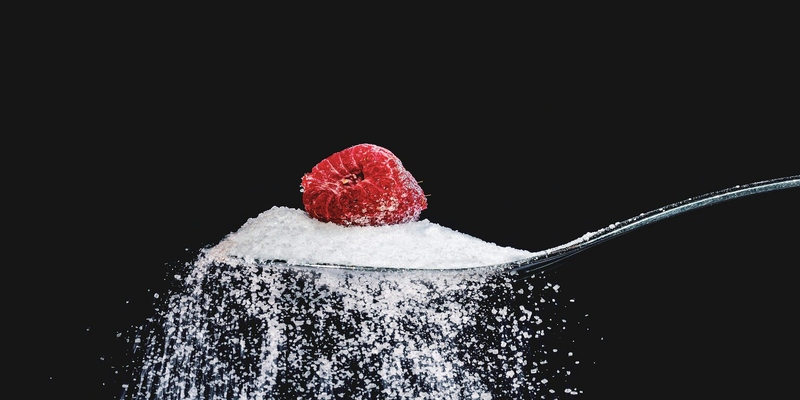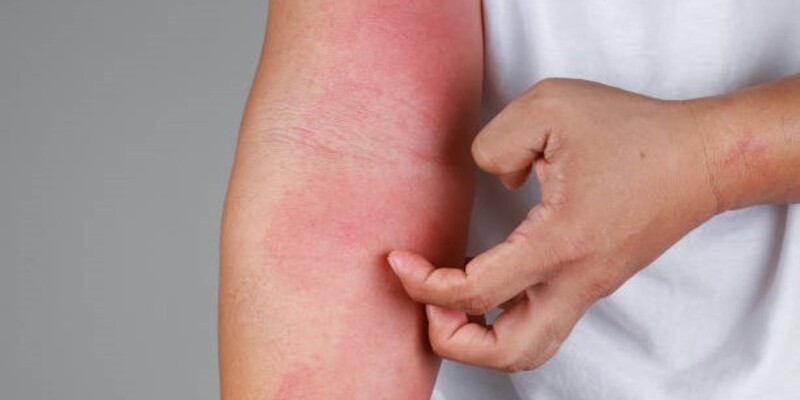Try These 6 Tricks for Summertime Skin Relief! Experts Curated Guide
Mar 14, 2024 By Madison Evans
Is summertime skin dryness anything that perplexes you? We get it; oily and perspiration-prone skin is common throughout the warmer months. Still, many individuals express dissatisfaction with their seasonal skin's dryness throughout the summer. Curious as to why? In this sweltering weather, several things may draw moisture from your skin. We explain the cause of this phenomenon and advise you to avoid wrinkles and dry skin this summer by keeping your skin hydrated.
Causes of Dry Skin In Summer

Summer may cause dryness on any skin type, including normal and mixed. These are a few of the primary reasons for wrinkles and dry skin:
- You may cause transepidermal water loss (TEWL) by damaging your skin barrier function in the sun or by being too hot without wearing adequate sun protection factor (SPF). Because of this, the skin becomes dry throughout the heat.
- Sunburn isn't the only way your seasonal skin may dry; perspiration is another major contributor.
- Sitting in air-conditioned environments also inhibits the skin's ability to lock moisture, leading to dryness.
- Spending long periods in the pool to escape the heat may also dry out your skin. Chlorinated water strips away your skin's natural pH.
6 Ways For Dealing With Dry Skin In Summertime
Face Washes and Cleansers
Some cleaning products, such as soaps and cleansers, contain chemicals that dehydrate the seasonal skin. Choose hypoallergenic, gentle face cleansers that also moisturize. Try using papaya or another fruit enzyme; just make sure they don't contain parabens or other potentially dangerous chemicals.
Skin Creams for Day and Night Routines
A moisturizer is a lifesaver for wrinkles and dry skin. Ceramides help hydrate the skin and prevent drying out, so look for one that contains them. Here are a few tips:
- Use a moisturizer with a high SPF for daytime protection from pollutants, free radicals, and UV radiation.
- Niacinamide, Phyto sphingosine, glycerin, lanolin, hyaluronic acid, and vitamin C are ideal moisturizing ingredients. Glycerin, gentler than lanolin, is less prone to trigger allergic reactions in delicate skin.
- Choose a moisturizer based on your skin type. Gel-based summer moisturizers are lightweight.
- Combination skin with oily spots needs a lightweight, water-based moisturizer. Use a heavier cream-based moisturizer for dry neck and face.
- If your seasonal skin is dry, use a lotion with moisturizing properties.
- To avoid allergen-induced breakouts, sensitive skin needs a hypoallergenic product.
- Oily skin needs non-comedogenic, oil-free moisturizers to avoid pore obstruction.
- A night moisturizer with retinol helps skin cells rejuvenate while you sleep.
- Sometimes, these lotions need prescriptions. Before using retinol-based lotions for wrinkles and dry skin, see your doctor.
- Use an overnight moisturizing mask once a week to enhance moisture.
Makeup Precautions
Hydrated skin prolongs makeup. Apply a light moisturizer before makeup. Prevent makeup from letting your skin breathe and prevent blocking pores.
- If you want your foundation or other cosmetics to go smoothly, use a primer first. Skin type-specific options are offered. Gel-based moisturizers prevent skin dryness while applying makeup.
- For a more consistent complexion, try BB cream instead of foundation. Choose an uncolored transparent one. Afterward, add concealer to mask dark bags under the eyes and other flaws.
- Dust on some loose powder to set the makeup and prevent it from fading. Compacts make your face seem cakey, so stay away from them.
Use of Humidifiers
Summer skin may get dry because air conditioners remove moisture and humidity from the air. Humidifiers can adjust interior air humidity in dry, hot climates so your skin won't grow drier.
Healthy Diet
Eating certain meals may moisturize your skin inside. Eat these meals to prevent summer skin drying:
- Sweet potatoes ' high anthocyanin, vitamin A, and beta-carotene levels help restore skin. They strengthen and nourish the skin's outer layer.
- Due to its vitamin C and antioxidant content, cucumbers reduce inflammation.
- Eat avocados for heat-related wrinkles and dry skin. They include vitamin E and omega-6 fatty acids, which postpone aging and moisturize the dermis.
- Tangerines and other citrus fruits contain vitamins A, C, and beta-carotene, which boost skin collagen and delay fine lines and wrinkles. They also remove sun damage and restore moisture.
- Coconut oil is great for topical skin treatment due to its hydrating characteristics. It calms atopic dermatitis and includes antioxidants.
- The presence of omega-3 and vitamin E in dried fruits, nuts, and seeds is widely documented. Walnuts, sunflower seeds, pumpkin seeds, and almonds prevent sunscreen, irritation, and dry skin summer.
- Fatty seafood like salmon, rich in omega 3, may protect against the sun. They may reduce inflammation, which may improve psoriasis and dermatitis.
Home Remedies
- After massaging olive oil over your skin, wet a cloth with warm water and set it aside. After it stops being heated, take it off your face. Wipe off any excess oil to wash your skin gently without removing its natural moisture.
- Combine two teaspoons of olive oil with 1/2 cup of sugar to make an exfoliating scrub. For an extra aromatic touch, try adding some essential oil. Scrub it all over your body and then rinse it off to leave your skin hydrated. Use a moisturizer right away on wet skin.
- If you suffer from dry skin summer, you may naturally rehydrate it by mixing a cup of oats with a pail of water. It aids in moisturizing the skin while also soothing it.
- Swap off your nightly moisturizing lotion with coconut oil. Work it into any dry places. You may add a few spoonfuls of natural oils to your bath water, such as argan, jojoba, or avocado.
- Put some cool milk on itchy, dry skin. In addition to being an effective exfoliant, the lactic acid it contains makes it a fantastic moisturizer. Additionally, milk may restore your skin's natural color and eliminate tan lines.
- To alleviate dry skin summer and prevent it from getting drier, try using aloe vera gel instead of oil. It's far less sticky and more soothing. It may also calm red, inflamed skin.
Bottom Line
Dry skin is a typical summertime complaint due to high temperatures and water loss. You avoid dry skin in hot weather by eating properly, and moisturizing and hydrating your skin.

Retinol Safety for Summertime Use - How Do Derms Use It

Enhancing Your Movement: A Guide to Mobility and Flexibility Workouts

Step-by-Step: The Best Practices for Disinfecting Your Makeup Sponge

Understanding Sugar's Importance in Our Body

Exfoliate Your Way to Smooth Skin: Top 8 Benefits of Facial and Body Scrubs

How Does One Choose Between an Essence and a Toner?

What Is Contact Dermatitis? Everything You Need To Know



